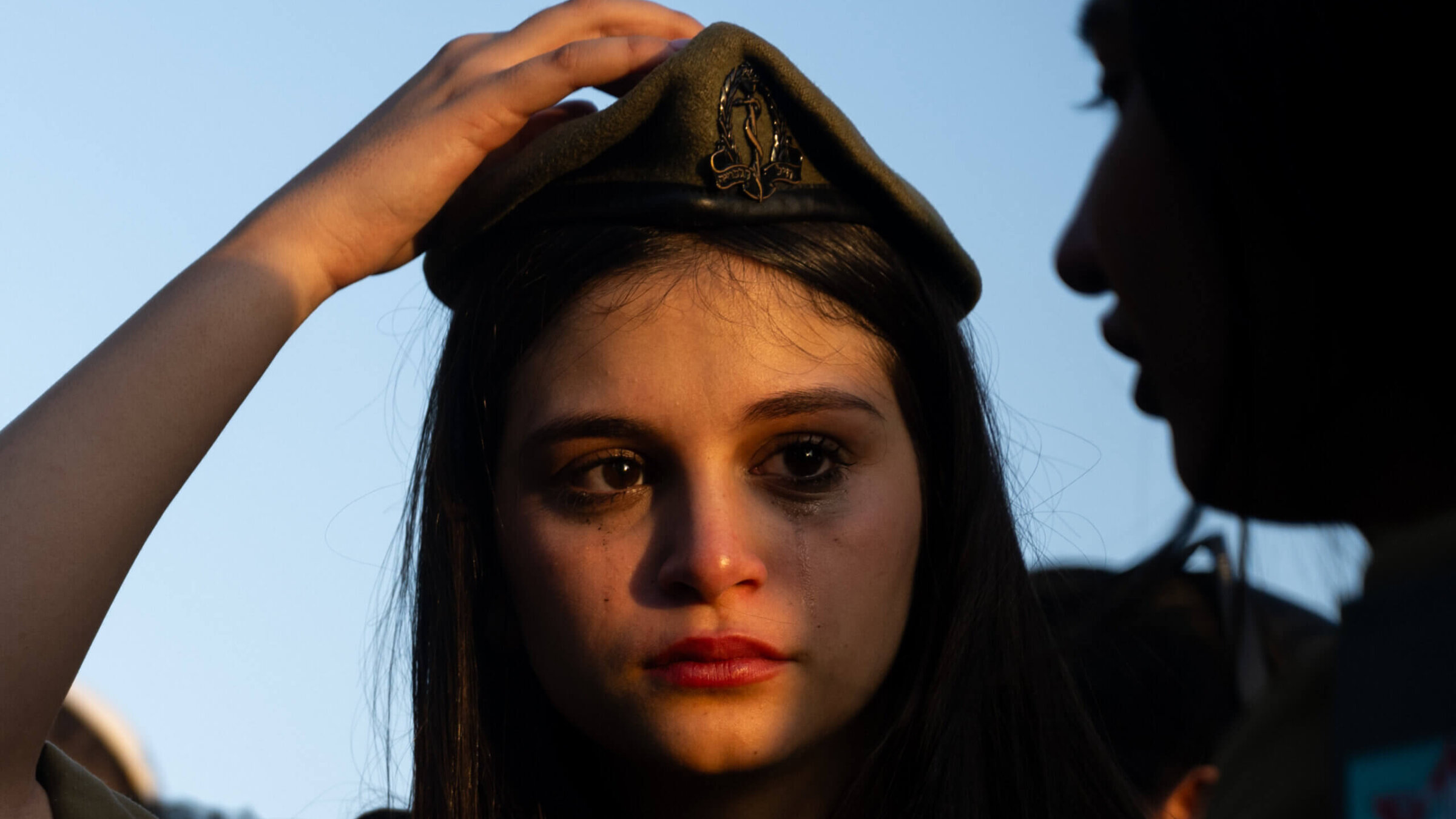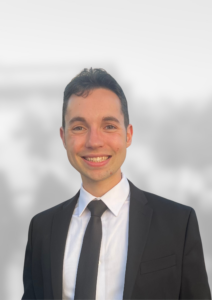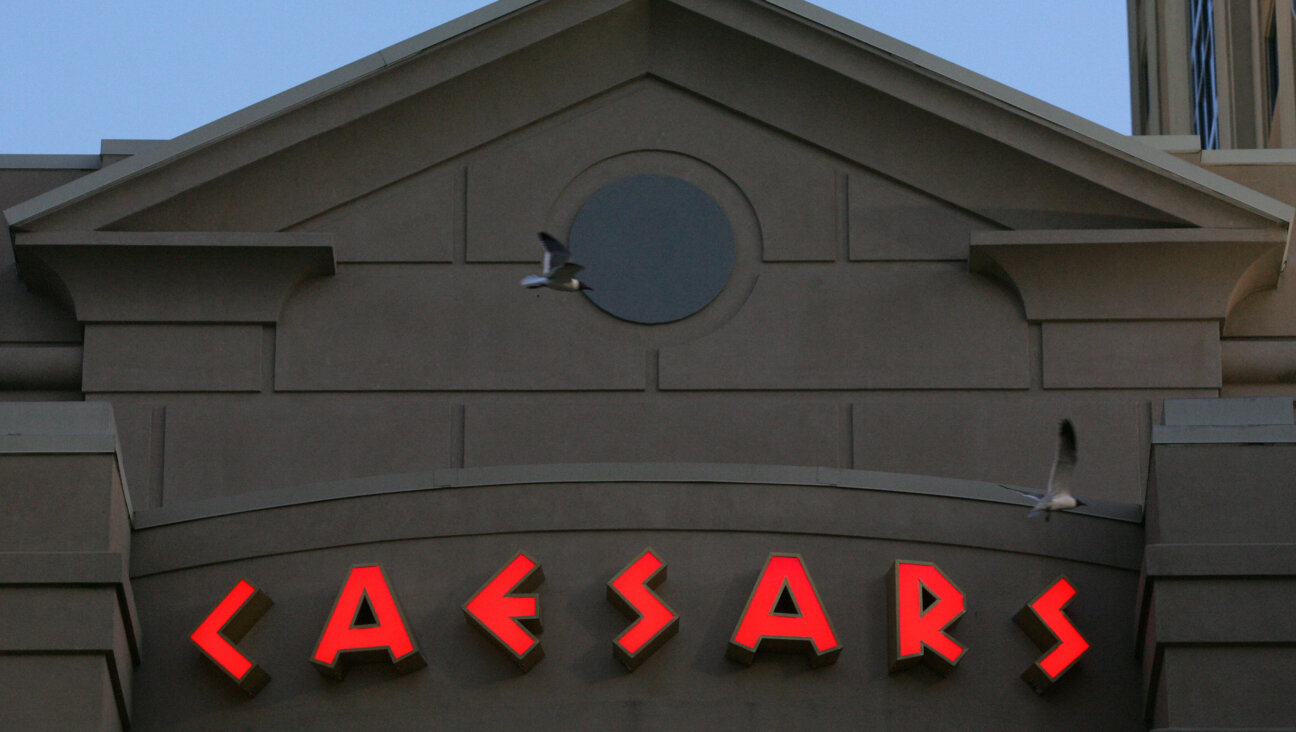As a new resident of Israel, I’m learning what it means to grieve with a nation
The gulf between native-born Israelis and myself has been the most profound in the months since Oct. 7

A young woman grieves for Staff Sergeant Shai Arus during his funeral at the Holon Military Cemetery, Nov. 02, 2023 in Holon, Israel. Arus is one of 232 Israeli soldiers who have been killed in Gaza during the four months of ground operations. Photo by Alexi J. Rosenfeld/Getty Images
“How are you doing?” my rabbi asked me one December afternoon, his gentle smile and soft eyes meeting mine. It was two months since the horrors of Oct. 7, and we sat in his Jerusalem office ready to begin our weekly chavrusah study session.
I responded enthusiastically, with a cheery confidence I instantly regretted. “Thank God, I’m doing really well — how are you?”
He grimaced and sheepishly turned his face away. “I’m doing …” he began, trailing off with noticeable discomfort. “I’m doing the same as everyone else.”
An audible silence followed, and he offered me a sympathetic smile. “It’s a hard time for the Jewish people.”
“Yes, of course,” I blurted. “It’s still so surreal.” With that, we opened our books and began to learn.
Since moving to Israel six months ago, the gaping distance between myself as a new oleh (immigrant) and the rest of Israelis as home-grown natives never escaped me — every grocery store errand, bus-stop exchange, and bureaucratic encounter reinforced my inherent foreignness. But I’ve never felt it more pronounced than in the nation’s mourning in the months since Oct. 7. For the first time in my life, I’m learning what it means to grieve with a nation — in ways I’ve never experienced before.
Jews everywhere were shaken by Hamas’ terrorist attack against Israel back in October. Dara Horn, author of People Love Dead Jews, observed in those early weeks, “The feeling of deep dread that these atrocities stirred in Jews was horribly familiar.” It resonated with millennia of Jewish tragedy — an old script in a new production.
But as with most things, over time, sensitives wane. Normalcy returns. Whatever visceral connection of Oct. 7 still endures for world Jewry, it is likely less intense than before. When I visited America for Hanukkah, my friends said as much. “You still feel it,” they explained, “but it’s just hard to always be thinking about it.” The pain lives at a distance. Life is overrun by routine.
For Israelis, though, that Oct. 7 dread has never left.
Life only appears normal in Israel — crowded coffee shops, congested traffic, frolicking schoolchildren. Visiting Americans are always struck by it: “It just looks so regular,” they remark. But looks are misleading. Oct. 7 lines every Israeli’s consciousness; every smile is one comment away from sorrow, every greeting one question from tears. The pain in Israel is discreet but overwhelmingly present — a constant awareness of past and possible death.
R. Levi says in the Talmud that a mourner should imagine a sword, a symbol of death, following them throughout their stages of Jewish grief — between the thighs for the first three days; in the room’s corner for the following four days; and wandering the marketplace thereafter. The sword of Oct. 7 never left Israelis; the blade’s shadow hovers everywhere.
I don’t sense that sword in the same way. My heart aches for the remaining hostages, and I fear the looming dangers ahead. I feel deeply with the Jewish people and Israel. But alongside my bound-up national concern, I live with the concerns of my personal life: Torah study, dating, learning Hebrew.
For Israelis, the individual dissolves into the national, and the state of their lives becomes inextricably defined by the state of Israel. “My personal family is OK, but my national family is in shambles,” someone once responded to me when I asked about their family. That’s a collective cognizance I’m still working to cultivate.
I feel this most acutely in regular conversations about Israel. My instinct is to intellectualize things, to introduce and mull over difficult questions: Is Israel’s military campaign successful? What comes next for Gaza? How could the IDF blunder so badly? Stuck in my old habits, I tend to speak analytically from a distance. Like an outsider.
But talking to a soldier previously stationed up north or to a friend whose relative is still held hostage in Gaza quickly humble me: These people are not interested in abstract conversations about “yesterday” or “tomorrow.” The concern for them is today — which soldiers will die, if hostages will return.
When I lived in America, my sense of Jewish peoplehood struggled against living within another nation’s borders, so it primarily existed within my isolated Jewish community. Emails, events and chatter constructed that world amongst us, but when we ventured out into public life — that is, in life beyond our smaller Jewish world — we carried our Jewish sensitivities alone. Our Jewishness changed how we viewed the world, but the world remained unchanged by us.
In Israel, that sensibility of Jewish peoplehood is palpable. As Israelis, we live in the national embodiment of that peoplehood. It pervades every corner of life and is a lens shared by all. On my Jerusalem street alone, about a dozen yellow ribbons and “Bring Hersh Home” banners line the limestone buildings. All buses include automated messages of support on their speaker. Every minyan in my shul is elongated by added recitations of Psalms and insertions of “Avinu Malkeinu” — a prayer that asks God for forgiveness and blessing. Everyone is always thinking about the war, the soldiers fighting it, and the hostages trapped in it.
All this situates Israel in a different place than the rest of the world. There’s a time and a place for questions — about Israeli leadership, the IDF, Gaza, peace prospects. But the mourning home is no place for questions. I understand that these issues demand urgent solutions. But solutions are not born from casual conversations held by individuals without total knowledge and without decision-making power.
I can sit and discuss and dissect countless elements of Israel’s war and of Gaza’s future with Israelis, and I wouldn’t discount those conversations as entirely meaningless. But the dead of Oct. 7 and the ensuing war dominate the perspective of Israel right now in ways Jews elsewhere cannot understand, in ways I’m still struggling to understand. That’s not something we should take lightly. If we question, and how we question, matters a great deal. Without an understanding of the all-encompassing collective grief Israeli people are feeling, there can be no collective action for a better future.
The divine reward for visiting mourners, R. Papa teaches in the Talmud, is for the silence the visitor brings. I’m learning what it means to sit in that silence with the rest of Israel, to mourn this national tragedy every day and at every hour, with a sword always trailing close behind.
To contact the author, email [email protected].















